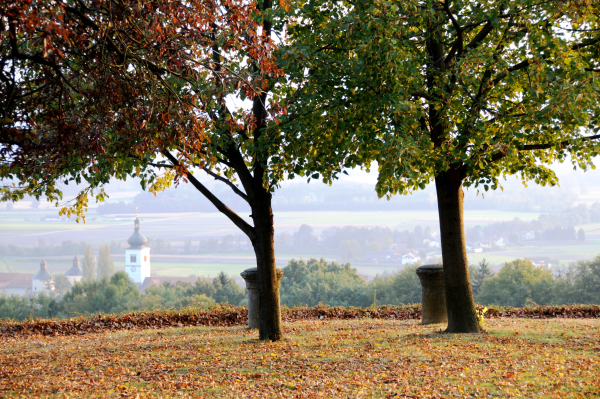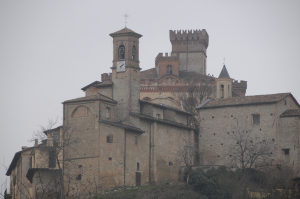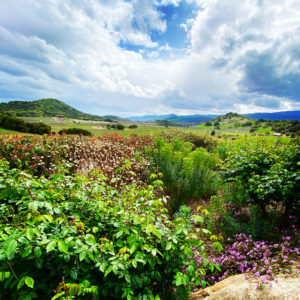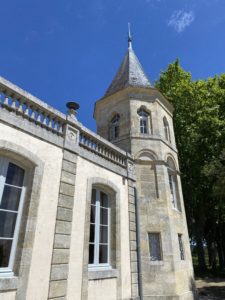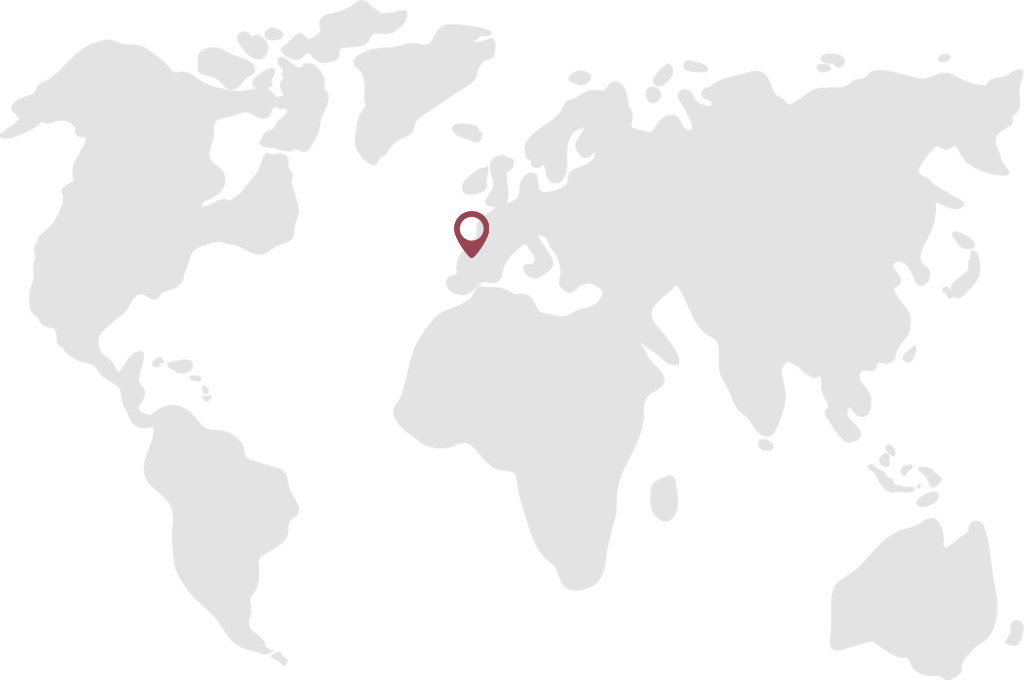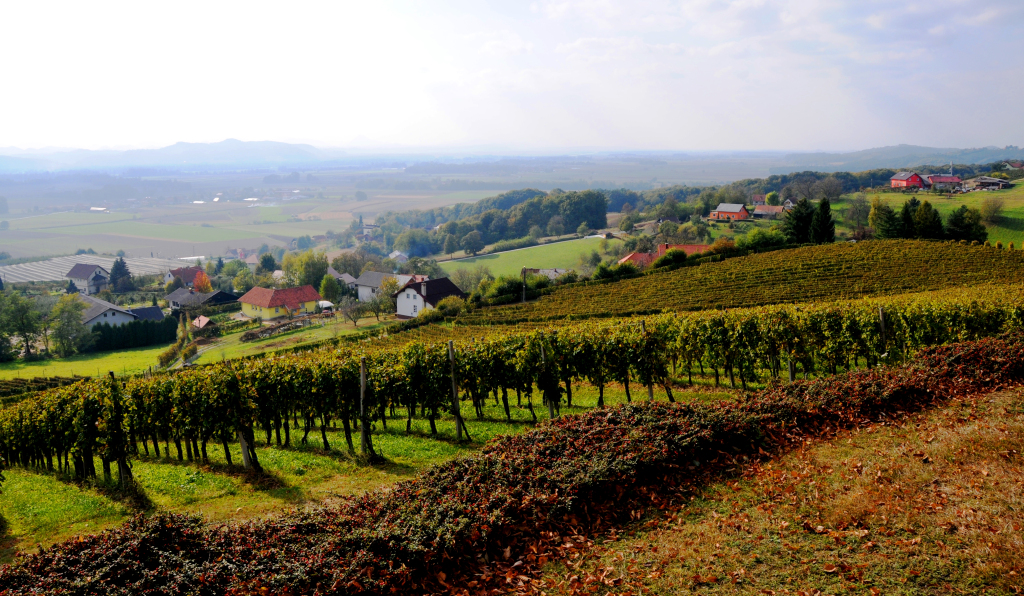
A small winery named Kogl sits on a magnificent hillside in the alpine country of Slovenia. It is located about 20 kilometers east of the city of Ptuj (pronounced Pit-OO-eee). A great battle took place on this hilltop on Easter Sunday 1199, known as Great Sunday, or Velika Nedelja.
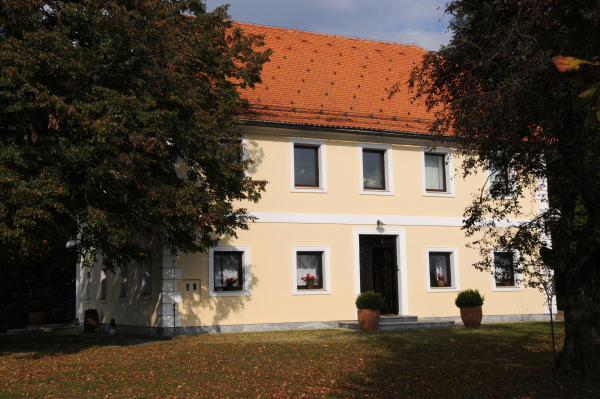
I walk to a large hilltop house with tangerine colored walls and an orange roof, then ring the doorbell. A woman answers.
She wears a green jacket, baggy purple trousers, blue shirt and red shoes. Her name is Zlatka. She is the wife of the wine maker Franci Cvetko, the man who is busy driving a nearby lawn mower. She leads me out to the hilltop land before the house. The view from the plateau outside is of fallen brown leaves, vineyard, and churches.
“We are the first Slovenian owner. Seven hectares, bought in 1983. Before that it was English or Slovenian, but no one lived here. The hill and the wine were first signed in 1542. At first this property belonged to the church. The property is named Kogl.
“We finished our high school and we started to do wine here. My husband’s name is Franci in Slovenian. But friends and guys who work with him call him Frank. And I always call him Frank.
“The location is one of the most beautiful in Slovenia. We are on top of the hill and have a view – in that way is the castle of Ptuj, then Maribor, and after that Austria. That wood is in Croatia. You see to the left? After that is Hungary, you can see two, three times a year. We can see also Slovenian Alps. When it’s really clear you can see the lights of night skiing in winter.
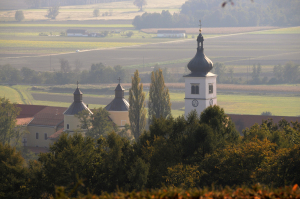
“When we started it was not usual for winemakers to be so young. But my husband said if you can read a book, then you can be whatever you want. My husband is a guy who really does whatever he’s doing with all his passion. Whatever he’s doing he’s doing perfect.
“He’s doing that label, Mea Culpa [which means ‘my fault.’] That just says to you he is responsible for the quality. We are small. But we are exporting to Germany, the United States. Mostly we sell at home.
“He said that it’s not important that your name is on the bottle. What is important is how to do it, and how to live. Kogl is important to our family because Kogl was known in the 15th century and is still known. Our family name is Cvetko. But what is important here is Kogl.”
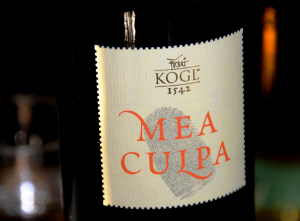
“We are connected with Slovenian artists. For seventeen years they have come to us and lived with us for one week, the first week in June. They’re working on what they want to do. Their art. But it is not connected with money. We don’t pay them and they don’t pay for anything. We just ask them that if they do something here, to let us put a picture on a label. But that picture does not belong to us. We just have the use of that.
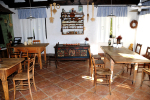
“I say it is just for his soul. For our soul. For the soul of our house. Our wine, our label. That is just a little part. We have two times a year a bigger event when we have theater. That is the first Saturday in June. Always. And the first Saturday in September we have a concert, exhibition of art, photographs and paintings. We have theatre and music. Nice time. From 2 o’clock till the last go home in the evening or night.”
Zlatka shows me the names of white varietals they use. These include Auxerrois, Sämling, Sivi Pinot [Pinot Gris], Morillon Blanc [Chardonnay], Traminec, Muškat Otonel [Riesling], Renski Rizling, and Rumeni Muškat. Their reds include Syrah and Pinot Noir.

“In Slovenia things are changing. The houses are more colorful [she laughs]. You see red, green, orange. That is new. A lot of color. Europe came near us, or we came near Europe. Yes, the border is now open more than before. The younger generation is growing up in another world.”
Zlatka pulls out five plates filled with meats, cheeses, grapes, tarts and bread. Each is arranged beautifully. She nonchalantly presents a feast without hurry to her conversation or movements, and then begins to open bottles of wine. With each opening she pours a glass for me before uncorking – many minutes later – another. My planned half hour visit transforms into all afternoon stay. The wines are rich and balanced.
“I have been one time in the United States. One week in New York. We stay in the center, on the 17th floor. I see nothing. I always must go to the park to see something green and play. One woman wrote. She said she must wake up at five, go to gym, then work 14 hours. She doesn’t see the man she lives with. She says that’s normal in New York. She says other people that work with her say she can’t do the work if she’s not there 14 hours a day. Then, I think, I’m a queen!” [she laughs.]
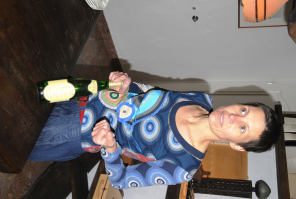
“You must stay a little bit longer. Wine needs time. Can’t hurry. That’s not normal for wine. Maybe for apple juice or something. But not for wine.
“You have what you need for your life, and what you want for life. You decide. We decided we can buy our winery. We can be bigger. But that’s more work. More people. At the end, what do you have more of? Do you have more time? Maybe. Yeah. Yes, you have more money. But for what? Do you need it? What is value for this money, or this time? In our house it’s always balance. You have to make a choice. I think we have enough.”
Zlatka pours a fifth wine, a sweet and beautiful late harvest Riesling. We taste it and step outside. She looks at the fading orange dusk on the hillside and nods to two stone posts and two trees ahead of us.
“We have twins. A girl Špela, a boy Luca. The stones belong to Luca and Špela. Then we planted the trees. Fourteen years ago. I don’t know if they are interested in producing wine. But for us what is important is that they do what they like, and have this home to return to.”
